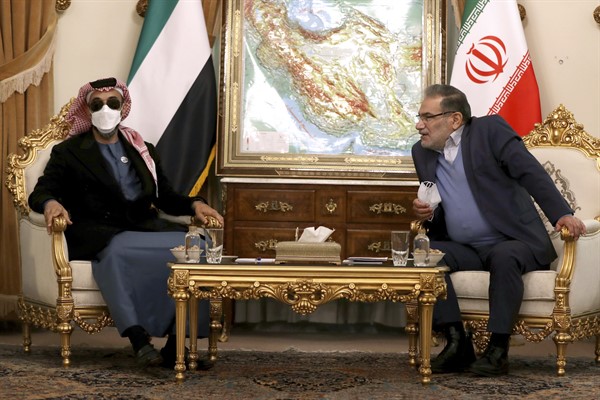A series of deadly explosions in Abu Dhabi, the normally placid capital of the United Arab Emirates, has created a strategic quandary for the UAE government. Its leaders are in the midst of a major diplomatic reinvention, seeking to develop good relations with all of their regional neighbors, including, notably, Iran. The recent attacks, which were carried out by Houthi rebels in Yemen, may cause the UAE to reconsider its rapprochement with Tehran, the Houthis’ chief sponsor.
The Houthis’ weapons, reportedly advanced missiles and drones, killed three people—two Indian nationals and one Pakistani—and injured six others. The strikes targeted an area near the Abu Dhabi International Airport, as well an industrial zone close to a state-owned oil facility, whose petroleum tankers exploded in the resulting fire. The attack marks a major escalation in the Houthis’ cross-border attacks. The rebels previously hit civilian facilities in Saudi Arabia—which leads the campaign against their rebellion in Yemen—and claimed to have attacked the UAE in the past. But this is the first time the Emiratis have confirmed that they were successfully targeted.
Although the UAE vowed that the attacks would “not go unpunished,” the Houthis took responsibility for the strikes and even raised the stakes. “We advise the UAE to learn from this lesson,” a Houthi spokesman said. He explained that the rebels want the UAE to end its support of the proxy militias that continue to fight on behalf of Yemen’s government, which was ousted in a civil war that started in 2014 and later reinstated with Saudi help, despite the continuing insurgency. “Otherwise,” the spokesman warned, “the strikes will continue.” Another prominent Houthi deemed the UAE “a country made of cardboard and glass,” and threatened to attack the United States, too, if it intervenes.

